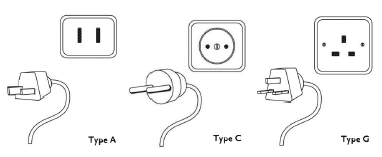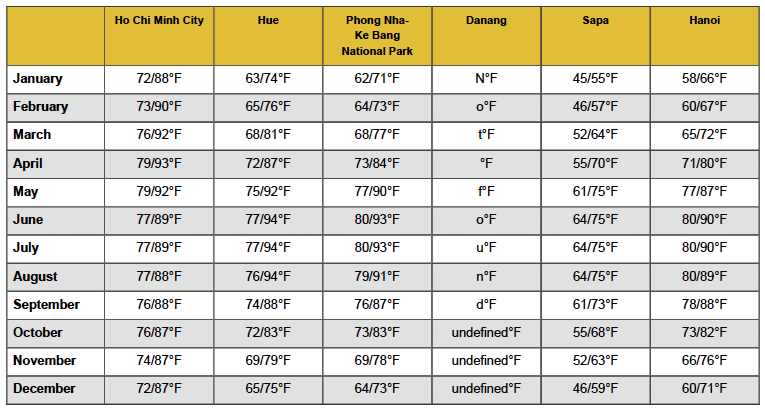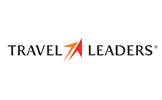VIETNAM

Fun Facts From Globus Tours
- Vietnam is ranked 13th in the world for population and 40% of its country is dominated by mountains
- Despite its small size, Vietnam is home to six different biosphere reserves
- It is not uncommon for people to keep potbelly pigs as pets in Vietnam.
Extending from the mountainous north to the verdant flood plains of the Mekong Delta, Vietnam boasts a rich and fascinating culture, striking beauty, and tantalizing cuisine. A palpable energy buzzes throughout the country, arousing your curiosity and elevating your senses. City streets set the stage for a symphony of zipping motorbikes. Bustling local markets paint a picture of daily life. The breathtaking highlands around Sapa and the golden beaches of Hoi An provide perfect serenity. And remarkable geological formations— like stunning Ha Long Bay—present panoramas you’ll never forget. While reminders of the war remain, it is firmly in the country’s past. The people of Vietnam are eager to welcome you and share their country, stories, and gracious smiles.
VISAS, PASSPORTS, AND OTHER ENTRY REQUIREMENTS
You are responsible for obtaining and paying for all entry documents (visas, etc.) and for meeting all health requirements (inoculations, etc.) as required by the laws, regulations, or orders of the countries you will visit. We cannot accept liability if you are refused entry onto any transport or into any country for failure to carry correct documentation.
A visa for your visit to Vietnam is necessary for US citizens. If you hold a passport from another country, check with your local consulate about requirements for travel to Vietnam.
Vietnam visas can be obtained prior to departing the US either through an embassy or visa service. Alternatively, if entering the country via Ho Chi Minh City or Hanoi, you can apply for a visa online (here) prior to departing the US. Visa on arrival doesn’t apply when entering the country at border crossing on the Mekong. The embassy or visa service will be able to advise the latest requirements for obtaining a visa.
In general, going through a visa service is more expensive but it offers convenience and peace of mind. If you choose to go this route, we recommend contacting Generations Visa Services (GenVisa), our preferred partner for visa and passport services, at least 90 days prior to departure. GenVisa has a special website and toll-free number. Call 800.845.8968, email info@genvisa.com, or visit their below websites for additional information. Our travelers receive discounted prices and other special services:
- For Monograms, visit: genvisa.com/monograms
- For Globus, visit: genvisa.com/globus
- For Avalon, visit: genvisa.com/avalon
- For Cosmos, visit: genvisa.com/cosmos
All passengers traveling internationally are required to have a passport. Most countries require that the passport be valid for at least six (6) months beyond the conclusion of your trip, so please check the expirationdate carefully. It is also recommended you have a minimum of three blank pages in your passport when traveling, as many countries require blank pages. Please carry proper identification (your passport) on you and do not leave it in your suitcase or hotel room. Most countries have laws that require you to carry your passport with you at all times.
COUNTRY CODES
The country code for Vietnam is 84. When calling to Vietnam from overseas, dial your international access code (011 from the US/Canada), followed by the country code, area code, and phone number. Phone numbers in Vietnam are 6-10 digits in length. Dialing from the US/Canada: 011 84 ### ### ###.
CURRENCY
The local currency is Vietnamese Dong
-
-
- Banknote denominations: 100, 200, 500, 1,000, 2,000, 5,000, 10,000, 20,000, 50,000, 100,000, 200,000, 500,000 Dong
- Coin denominations: 200, 500, 1,000, 2,000, 5,000 Dong
-
As a general guideline, bring a variety of payment means, particularly in the event that you have difficulties with your preferred method of payment.
Cash
US dollars are widely accepted in restaurants, hotels, and major shops throughout Vietnam. Alternatively, if you prefer, you can also exchange US dollars into the local currency, the Vietnamese Dong.
When paying with US dollars it is important to note that change may be given in the local currency. For initial convenience we recommend you bring some US dollars with you from home. It is advisable to bring newer US notes that are in good condition as some merchants will not accept those that are tattered and/or old.
ATMs are the most convenient way to obtain money in Vietnam as they are readily available throughout the country.
For the most current exchange rates, please go to our website at Globusjourneys.com/Currency.
Credit Cards
Major credit cards are widely accepted (only Visa & MasterCard on the Avalon cruise) but some shops and restaurants require a minimum purchase amount when using them (so they are not appropriate for incidentals such as ice creams, snacks, etc.). You might consider bringing more than one card, as some outlets may not accept all types. Due to increasing credit card fraud worldwide, be prepared to show identification (i.e. your passport or driver’s license) when making a transaction with your credit card. If you use a credit card for your purchase, most transactions will be debited in the local currency, and your bank will establish the rate of exchange on the debit.
Traveler’s checks
Although a secure means of carrying money, traveler’s checks unfortunately are becoming very hard to use. Due to this we recommend you plan on using cash and credit cards only.
Bank Hours:
Mon. – Fri., 8:00 am – 4:00 pm
Sat. – Sun. – Closed
BUDGETING AND SHOPPING
The following budget guidelines are just approximate values or starting values for meals and are per person. Actual prices will vary widely by restaurant and city within a country but below are some averages as provided by our experienced personnel.
-
-
-
- The approximate cost of a soft drink/mineral water/coffee is US$1-3.
- An average lunch consisting of a salad or sandwich and a soda or water starts at approximately US$9-10.
- Dinner at a mid-range restaurant with dessert and a non-alcoholic beverage starts at approximately US$25.
-
-
Shopping
Prices are as marked in department stores, though in Asia it is customary to barter. Start negotiating with an offer at one-third or half the vendor’s initial price. Please be warned that if you buy items on tour to be shipped to your home, customs import charges are hardly ever included in the price. Sales tax or GST (Goods & Services Tax) is normally already included on price tags; GST refunds, if applicable, are processed at the departing airport from the relevant country.
TIPPING
Tipping is not expected in Vietnam but is greatly appreciated. We recommend tipping table staff at local restaurants the equivalent of 10% of your bill.
-
-
-
- Some cab drivers may automatically round up your fare as a tip.
- Tipping hotel staff for bar or room service is at your discretion but if you choose to we recommend US$1 at the most (not including porterage which is included).
-
-
ELECTRICITY AND ELECTRICAL OUTLETS
Voltage for outlets is 220V. North American voltage is generally 110V. Some, but not all, hotels feature multi-region outlets that accept different types of plugs. Due to this, for dual voltage electronics, we still recommend you bring an adapter. If you have single voltage electronics (110V) a converter is also required. Bathroom outlets are usually for razors only. The outlets look like:

TEMPERATURES
In general, Vietnam is warm/hot year round with varying levels of humidity.
The tropical south is hot year-round.
-
-
-
- April & May are the hottest months
- Summers are hot, humid, with some rain
-
-
The north experiences relatively high humidity year-round.
-
-
-
- There is some rain from May to October
- Winter months can get cool (as low as the mid-50s) with some rain
-
-
To help you plan, below are average low and high temperatures in Fahrenheit.

To convert to Celsius, subtract 30, then divide by 2. While not exact, this simple formula will give a close estimation.
FOOD SPECIALTIES
The national dish of Vietnam is Pho or noodle soup. You will see locals eating this at every meal. It is generally made with beef, chicken, or shrimp and vegetables including green onion and bean sprouts. This is served in a mild broth and you can add spice to your liking with chilies and chili sauce.
Drinking Water
Tap water is generally not safe to drink. For sightseeing and excursions, bottled water may be included, otherwise we recommend you bring bottled water with you from your hotel Bottled water is also common in restaurants.
CUSTOMS AND CULTURE
The Vietnamese people are generally very easy going and friendly. There are, however a few things that are best to avoid:
-
-
-
- Try not to point with your feet.
- In the company of monks or elders, never cross your legs.
- Do not touch people on the head or upper body
- When beckoning someone to come over do not flap your hand in the standard Western ‘come here’ motion; instead turn the hand round so that your palm flaps down towards yourself
- Do not shake hands with monks or nuns as people in general rarely shake hands; rather smile and nod awa
- Ladies should never sit down next to a monk
- Shorts and skirts should be longish (below the knee) for both sexes and it is okay to expose arms when visiting temples
- Smoking is common in Asia so locals tend to be less sensitive to issues regarding smoking around others and often ignore “non-smoking” signs.
-
-
FEW WORDS OF THE LOCAL LANGUAGE
 Vietnamese:
Vietnamese:
Good morning/day: Xin chao buoi san, Good evening: Xin chao buoi chie, Hi: Xin chao, Please: Lam on, Thank you: Cam on, You’re welcome: Khong co chi, Yes: Vang, No: Khong, Do you speak English? Ban co noi tien_anh?, I don’t understand: Toi khong hieu, How much? Bao nhieu?, 1: Mot, 2: Hai, 3: Ba, 4: Bon, 5: Nam, 6: Sau, 7: Bay, 8: Tam, 9: Chin, 10: Muoi, Where is…? O dau…?, Telephone: Dien thoai, Bathroom: Nha ve sinh, Tea: Tra, Coffee: Ca phe, Bottled water: Nuoc dong chai (carbonated=nuoc co ga, non-carbonated=nuoc khong co ga), Cheers! Tam biet!, Have a nice day! Chuc mot ngay tot!
U.S. DEPARTMENT OF STATE COUNTRY INFORMATION
Additional country-specific information for US citizens can be found on the US Government’s website www.travel.state.gov. Here, you can find the most up-to-date information about destination descriptions, passports/visas, safety and security, transportation, travel local laws, alerts/warnings, vaccinations, and more. For citizens of other nations, we recommend you consult your local consulate for travel information, regulations, and requirements.













